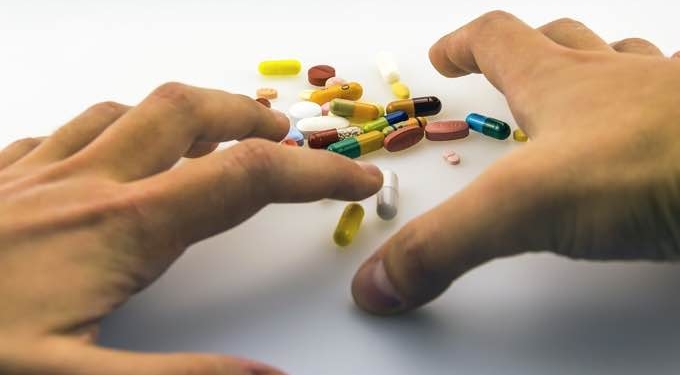
By Leslie Garrett | Waking Times
If there’s one constant among addicts of all types, it’s shame. It’s what makes us lie and hide. It’s what keeps us from asking for help – though we don’t think we need it because we’re also good at lying to ourselves.
About why we eat. Or shop. Or gamble. Or drink.
Dr. Gabor Maté knows the feeling well. Maté, a renowned doctor, speaker, and author, has seen it in the heroin-addicted men and women he treats in Vancouver’s Downtown Eastside. He sees it in the behavior of well-respected workaholics. The cosmetic surgery junkies. The power seekers. The ‘I Brake for Garage Sales’ shoppers.
He’s seen it in the mirror.
Maté, author of the groundbreaking book In the Realm of the Hungry Ghosts: Close Encounters with Addiction, believes shame is behind our unwindable ‘war on drugs.’ Our ‘tough on crime’ policies. Our judgment of addicts. Our marginalization of street junkies.
Maté knows, as so many of our spiritual teachers have tried to teach us, that our judgments of others are really all about us.
Maté, who serves as resident doctor at The Portland Hotel, a Vancouver housing project for adults coping with mental illness, addiction, and other challenges, saw himself in the stories of the women and men who, day after day, came to see him for treatment and who slowly, over years, revealed to him their pain.
Those of us still hiding and denying? Gabor Maté sees us too.
Haunted
Gabor Maté was born into the Jewish ghetto of Budapest in 1944, just weeks before the Nazis seized Hungary, to a loving but overwhelmed mother and an absent father, who had been sent to a forced-labor camp. Just months later, his grandparents were killed at Auschwitz. At a year old, he was handed by his mother to a gentile stranger who was assigned his safety.
Maté understands now that those early experiences – or, more accurately, his mother’s frantic state of mind – guided the neural circuitry in his still-developing brain. Impaired circuitry that virtually prescribed a future of addiction and its close cousin, attention-deficit disorder (ADD).
Over years of hearing the stories of street drug users, examining his own past, and putting it together with his medical training, Maté became convinced that – as he says in a recent interview:
both addiction and ADD are rooted in childhood loss and trauma.
It’s a novel – and surprisingly controversial – approach, examining not the addiction but the painbehind it. Fighting not the substance but the circumstances that lead someone to seek out that self-soothing.
Circumstance Over Substance
Addiction, says Maté, is nothing more than an attempt to self-medicate emotional pain.
Absolutely anything can become an addiction… It’s not the external behaviors, it’s our relationship to it.
Maté calls addicts ‘hungry ghosts,’ a reference to one of the six realms of the Buddhist Circle of Life. These hungry ghosts are depicted with large empty bellies, small mouths, thin necks — starving for external satisfaction, seeking to fill but never being full, desperate to be soothed.
We all know that realm, he says, at least some of the time. The only difference between the identified addict and the rest of us is a matter of degrees.
It’s a view that has earned him some critics, not least of which is the Canadian Conservative government, which has sought to shut down the safe-injection site he helps oversee. The conventional medical community certainly hasn’t embraced his ideas. Addiction is typically viewed through one of two lenses: as a genetic component or as a moral failure.
Both, says Maté, are wrong.
And he says he’s got the brain science to prove it.
“A Warm, Soft Hug”
Maté points to a host of studies that clearly show how neural circuitry is developed in early childhood. Human babies, more than any other mammals, do most of their maturing outside the womb, which means that their environment plays a larger role in brain development than in any other species.
Factor in an abusive, or at least stressful, childhood environment and you’ve produced impaired brain circuitry – a brain that seeks the feel-good endorphins and stimulating dopamine that it is unable, or poorly able, to produce on its own. A brain that experiences the first rush of heroin as a “warm, soft hug,” as a 27-year-old sex trade worker described it to Maté.
It’s the adversity that creates this impaired development, says Maté, not the genetics emphasized by the medical community.
And our response to addicts – criminalization, marginalization, ostracism – piles on that adversity, fueling the addictive behavior.
The good news is that addiction can be prevented, but only if you start early. Maté writes in Hungry Ghosts:
[Prevention] needs to begin in the crib, and even before then… in the social recognition that nothing is more important for the future of our culture than the way children develop.
















